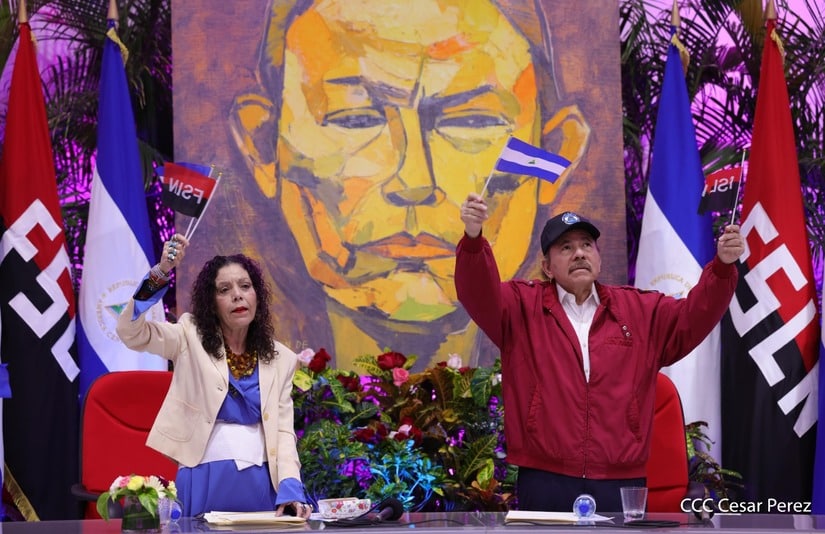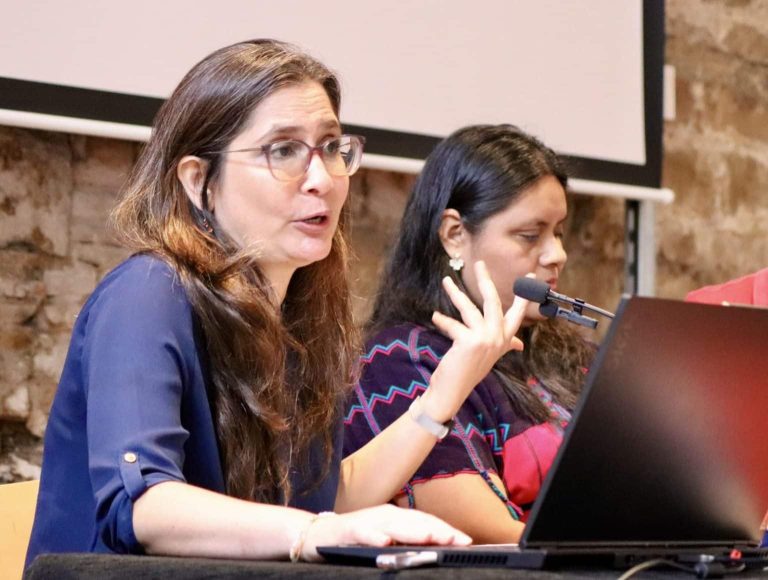21 de junio 2024

Is It All Over? Nicaragua 45 Years After "Triumph Over the Dictatorship"

PUBLICIDAD 1M
PUBLICIDAD 4D
PUBLICIDAD 5D
“Being heard is what drives me,” said Ana Margarita Vijil, a former political prisoner exiled by the Ortega dictatorship.

Ana Margarita Vijil during the days of reflection and dialogue on the challenges facing Central America in political matters. Photo/Courtesy
Nicaraguan political activist, former prisoner, and exiled by the Ortega dictatorship, Ana Margarita Vijil, raised the issue of the systematic human rights violations in Nicaragua and the high levels of violence against civil society since the 2018 sociopolitical crisis. She spoke at the “Human Rights and Peace in Central America: Challenges and Opportunities” sessions of the International Institute for Peace in Barcelona, Spain.
In an interview with CONFIDENCIAL, Vijil stated that her participation is “to inform others about what is happening in Nicaragua, so that they can also apply pressure and further isolate Daniel Ortega’s Government and open democratic spaces. It is a great encouragement for me,” she emphasized.
She argued that every space that highlights the situation in Nicaragua must be utilized because there is an extreme crisis in the country that is being concealed.
“I am driven by the immense certainty that my voice will be heard. I am also motivated to update others on the critical situation of the 141 political prisoners, the plight of their families, and the situation of more than 100 persons who are harassed by the police, having to sign in daily at local police stations. Likewise, the critical situation of the Nicaraguan people who live in a country that is a prison, where even the smallest expression can lead to detention,” she detailed.
The reflection sessions were held at the Barcelona History Museum, on June 18 and 19, 2024, with the participation of 16 speakers, human rights defenders, and environmental activists.
The organization explained that these are spaces for reflection and dialogue on the significant challenges facing Central America.
“The sessions also aim to give visibility to the complaints, ideas, initiatives, and alternatives presented by civil society and seek to bring the value of life back to the center of debates,” stated the organization.
Vijil appreciated that these initiatives by the Spanish Government encourage other countries to show “solidarity” with Nicaragua.
“This tremendous solidarity has been reflected in denunciations, in the fact that the Spanish Government was the first to offer nationality to those of us who were left stateless last year (2023). It has been reflected in that solidarity, in numerous sister cities of Spanish cities with Nicaraguan ones, in brigades, in people who have come and learned about the Nicaraguan reality, and it continues to be reflected in the appropriation of these spaces to be able to denounce,” she noted.
Vijil was exiled and had her nationality taken away by the Ortega regime in February 2023, along with 221 other Nicaraguans who were political prisoners.
The activist’s goal is to see a “clean country” in political matters, which she believes can be built, but it requires “a lot of help in isolating the regime and pressuring for the reopening of democratic spaces that can help us recover our country and our society,” she stressed.
Vijil explained that the themes addressed in the reflection and denunciation sessions are challenges related to the increase in authoritarianism in the region, “a full and harsh dictatorship in Nicaragua, and another one in the making, as is the case in El Salvador.”
She noted that she received the invitation to provide a “diagnosis” of the situation in Nicaragua, and also to talk about the “networks of denunciation and documentation” that have been created in recent years and the resistance of the population that has “a deep commitment to the defense of human rights, which we must work on starting now to build a society where every human right of every person is respected.”
This article was published in Spanish in Confidencial and translated by Havana Times. To get the most relevant news from our English coverage delivered straight to your inbox, subscribe to The Dispatch.
PUBLICIDAD 3M
Confidencial es un diario digital nicaragüense, de formato multimedia, fundado por Carlos F. Chamorro en junio de 1996. Inició como un semanario impreso y hoy es un medio de referencia regional con información, análisis, entrevistas, perfiles, reportajes e investigaciones sobre Nicaragua, informando desde el exilio por la persecución política de la dictadura de Daniel Ortega y Rosario Murillo.
PUBLICIDAD 3D